The global luxury goods market tends to stagnate.
Luxury items, such as vintage wines, works of art, yachts and private planes, were once the passions of the super-rich. However, in the current context, it seems that this hobby is undergoing remarkable changes.
"Why the super-rich are giving up luxury assets" - this is the title of a recent article by The Economist magazine. It sounds quite contradictory, but this is a hot topic recently in the luxury goods business.
The article cites a notable piece of data: the Luxury Investment Index compiled by British real estate consultancy Knight Frank, which has fallen about 6% so far this year over the past two years, compared to a gain of more than 70% in the previous period. This is because wealthy investors are becoming more selective in their luxury portfolios, driving down the prices of many of them.
The article also cited several luxury items that have been under heavy pressure recently, such as private jets and yachts in the US, down 6%, Bordeaux wines down 20%, and used Rolex watches for resale - down over 30%.
The global luxury goods market tends to stagnate.
Luxury industry profits under pressure
In the context of sharp decline in prices of luxury goods, their manufacturers - famous luxury goods corporations, also face unpredictable fluctuations affecting business results this year.
LVMH and Kering, the two leading groups in the luxury goods industry, are going through a turbulent 2025, due to tariff pressure and changes in consumer habits. LVMH recorded a 4% decrease in first-half revenue and a 22% decrease in net profit, with a notable decline in the fashion and leather goods segments. Meanwhile, Kering, the owner of the Gucci brand, recorded a 16% decrease in first-half revenue compared to the same period last year.
The recovery of the Chinese market has helped the luxury goods industry improve the situation in the third quarter, in which LVMH's revenue had its first growth quarter this year. However, businesses will still be under a lot of pressure.
Consulting firm Bain & Co forecasts the total market value of personal luxury products could fall by 2-5% this year, marking the second consecutive year of decline after peaking in 2023.
Why are global luxury consumption trends changing?
The question is, what is driving the shift in global luxury spending trends? A common reason cited by many is that economic fluctuations have led to people spending less money on luxury items.
However, the reality is that the wealthy are not much affected by economic difficulties. According to Forbes magazine, there are currently about 3,000 dollar billionaires in the world , a significant increase compared to 2,800 people last year. And according to Moody's Analytics, since 2022, the group of 3.3% of the richest people in the US has continuously increased spending, contrary to the trend of tightening belts of the lower income classes.
The problem is that these expenditures are no longer directed towards luxury products, which are still expensive but no longer so rare. The continuous expansion of the luxury goods market in recent years has helped increase sales, bringing products to more customers, but at the same time, it has also lost the feeling of "exclusivity" that wealthy customers feel when owning branded items.
As a result, this group of customers is showing an important shift: prioritizing luxury experiences, such as expensive trips or VIP tickets to top sports tournaments - factors that can help them have memorable emotions, improve their quality of life and bring deeper satisfaction than owning material luxury products.
Luxury shopping preferences are changing, with the wealthy shifting towards unique experiences rather than material possessions.
The rise of luxury experiential activities
It can be said that "experience" is the top keyword in the luxury market recently. And businesses are also gradually integrating with this trend with tourism products, or unique services to hit the psychology of many wealthy customers.
These days, wealthy visitors in Italy as well as Europe have the opportunity to travel on a tourist train, like the famous Orient Express of old, called "La Dolce Vita" - The Beautiful Life.
From listening to live piano performances in the concert hall, to enjoying wine and food prepared by a 3-star Michelin chef in the restaurant car, this train allows passengers to relive the experience of traveling by train - which used to be a high-class entertainment in the early 20th century.
Mr. David Re - Passenger on La Dolce Vita Orient Express shared: "I bought a ticket for this trip as a gift for my wife. Up to now, everything is great."
Mr. Heinz Beck - Head Chef on La Dolce Vita Orient Express said: "When I was a child, many people read Agatha Christie's novels and wanted to ride the Orient Express once. And now, you can take such a train right in Italy, providing a wonderful and emotional journey."
What's clear is that this five-star train experience doesn't come cheap - 3,500 euros per ticket for a one-night short-haul trip, while long-haul tickets can cost up to 12,000 euros.
In Dubai - one of the top destinations in the Middle East for the wealthy, yachts of all sizes have long been a unique and comfortable means of experience for many tourists, from sightseeing, partying to fitness classes.
Mr. Ronn Renkus - a customer who experienced the yacht said: "This is only my second time in Dubai, and the first time using a yacht rental service. It's crazy, but it was an amazing experience."
Bain & Co. data shows that the luxury experience sector could reach a value of up to $200 billion this year, with growth of 4-8%, significantly higher than the luxury goods business. The high-end hotel sector also has bright prospects, with profit growth forecast at nearly 5%, according to Allied Market Research.
Travel or activities that offer unique, one-of-a-kind experiences are gradually becoming a major concern for many wealthy people, especially young people of the Millennial and Generation Z generations. Tapping into this need is expected to create new momentum for the luxury market in the coming years.
Source: https://vtv.vn/gioi-sieu-giau-tu-bo-tai-san-xa-xi-100251114102739992.htm


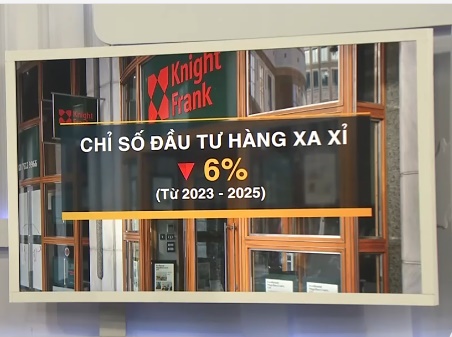
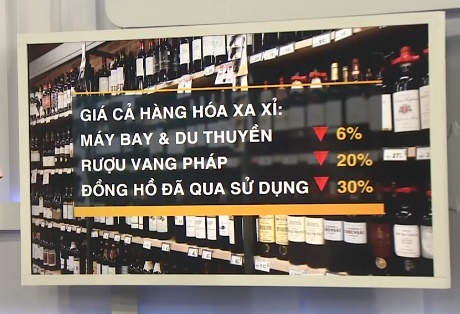

![[Photo] Unique architecture of the deepest metro station in France](https://vphoto.vietnam.vn/thumb/1200x675/vietnam/resource/IMAGE/2025/11/14/1763107592365_ga-sau-nhat-nuoc-phap-duy-1-6403-jpg.webp)
![[Photo] Unique art of painting Tuong masks](https://vphoto.vietnam.vn/thumb/1200x675/vietnam/resource/IMAGE/2025/11/14/1763094089301_ndo_br_1-jpg.webp)

















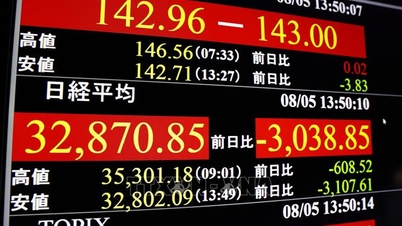











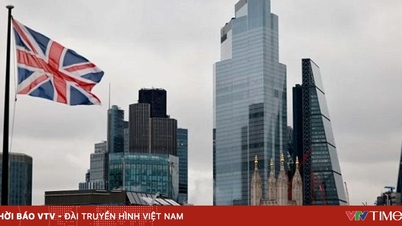


![[Photo] Special class in Tra Linh](https://vphoto.vietnam.vn/thumb/1200x675/vietnam/resource/IMAGE/2025/11/14/1763078485441_ndo_br_lop-hoc-7-jpg.webp)






























































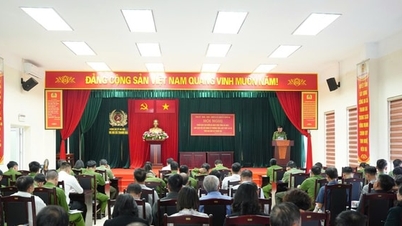














Comment (0)